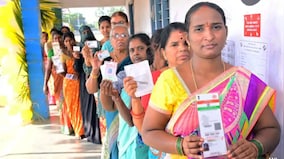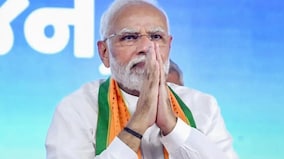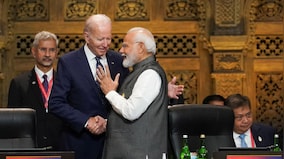Gaurav Gogoi and Rakibul Hussain, both from the Congress party in Assam, have brought new hope to the grand old party in the state with their victories. Despite the Congress winning only three out of 14 Lok Sabha constituencies in Assam, the nature of their victories in Jorhat and Dhubri is particularly noteworthy. These wins demonstrate the potential for a resurgence of the Congress party in Assam, highlighting significant support in key regions.
Gaurav Gogoi in Jorhat
Contesting from the Jorhat seat posed a significant challenge for Gaurav Gogoi, son of former three-time Assam Chief Minister Tarun Gogoi. The Kaliabor seat, which he had won in 2019, ceased to exist due to delimitation and a new constituency Kaziranga came up with changes to its geographical area. From selecting a new constituency to winning it amid an intense BJP campaign led by Chief Minister Himanta Biswa Sarma and numerous other ministers and leaders, Gaurav’s achievement stands out. This was Gaurav’s first election following his father’s death, and he had to prove his mettle without his father’s guidance, at a time when the Congress party was struggling with minimal support amidst a strong BJP wave.
The other constituency where Congress won last time was Nagaon, with the incumbent MP Pradyot Bordoloi already contesting from that seat. Gaurav, who had served as the Deputy Leader of Congress in the Lok Sabha in the previous term, accepted the challenge with humility and boldness. This election was his opportunity to establish his own legacy, independent of his father’s shadow.
Chief Minister Sarma’s campaign against Gaurav had a personal dimension. Sarma had accused Tarun Gogoi of nepotism when Gaurav was introduced into Assam’s political scene as a Congress candidate in the 2014 Lok Sabha elections. Sarma, then a powerful Congress leader, felt threatened by Gaurav’s sudden arrival. His differences with Tarun Gogoi led to his resignation from all positions on 21 July, 2014, and his eventual switch to the BJP on 15 September, 2015. It was widely known in Assam that Sarma would spare no effort to defeat Gaurav in the Lok Sabha election.
Topon Kumar Gogoi, who was aiming for a second consecutive term, faced Gaurav, a two-time sitting MP. Gaurav’s qualifications, informed insights and excellent oratory skills, showcased through his active participation in parliamentary debates, gave him an edge. He holds a BTech in electrical engineering and an MA in public administration. In contrast, former AASU leader Topon was largely seen as a passive figure. The educated electorate of Jorhat seemed to prioritise personality over party allegiance, leading to Gaurav’s victory.
Gaurav’s disciplined and respectful campaign strategy resonated with the voters allowing him to quickly establish a connection with a broad spectrum of people. This was a quality that Topon lacked, despite being the incumbent MP. Even with the BJP’s extensive campaign efforts across all 10 assembly constituencies under the Jorhat Lok Sabha seat, they fell short. Gaurav likened his situation to the epic battle of Abhimanyu in the Mahabharata, but unlike Abhimanyu, he emerged victorious from the Chakravyuha.
Rakibul Hussain wins Dhubri
Like Gaurav Gogoi, Congress MLA Rakibul Hussain faced significant challenges to secure victory in the Dhubri Lok Sabha constituency by defeating AIUDF chief and former MP Badruddin Ajmal, who had held the seat since 2009. Hussain’s victory margin was so substantial that even Chief Minister Himanta Biswa Sarma acknowledged it.
Sarma remarked that the most significant victory in the state belonged to Hussain, who defeated Ajmal in Dhubri by over 10 lakh votes. “He has achieved the highest winning margin in the country, making him the hero of the day,” Sarma said.
Ajmal’s defeat was a major blow to the AIUDF, as Dhubri was nearly synonymous with Bengali-Muslim votes, which the party believed were firmly in Ajmal’s favour. Hussain’s victory provides a significant boost for the Congress, which can now aspire to make significant inroads into what was previously considered an impregnable AIUDF stronghold. In the recent delimitation exercise, the Dhubri Lok Sabha constituency was redrawn to include 11 Assembly segments, encompassing approximately 27 lakh voters. Ironically, Hussain had previously criticised Chief Minister Sarma and the Election Commission, claiming the delimitation was an attempt to benefit Ajmal.
Ajmal, always confident of victory, now faces a surprising defeat that will force the AIUDF into introspection. This outcome was unimaginable, especially in Dhubri. Meanwhile, the Congress will likely capitalise on this advantage, with the Assam Assembly polls just two years away. Consolidating the minority votes from both the Assamese and Bengali communities could rejuvenate the party’s prospects.
Dhubri, which shares its borders with Bangladesh, is considered the heartland of Bengali-speaking migrant Muslims. Hussain was earlier part of Tarun Gogoi’s cabinet in Assam and a colleague of the current Chief Minister before Sarma’s fallout with the Congress and switch to the BJP.
In 2011, former Congress Chief Minister Tarun Gogoi famously responded, “Who is Badruddin?” when asked about a potential tie-up with the AIUDF. The AIUDF’s humiliating defeat in this election provides a stark answer to that question.









)
)
)
)